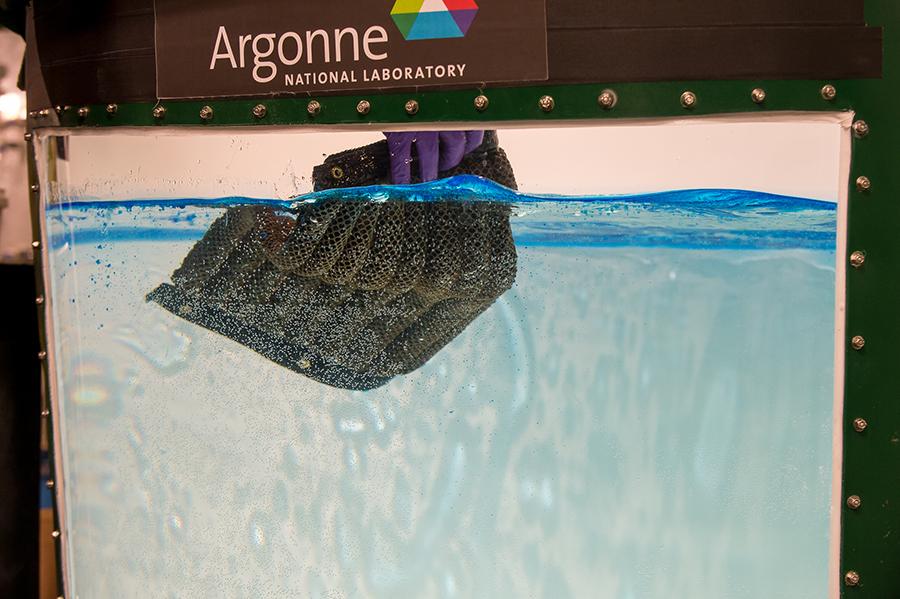
"One of the best ways to clean oily water is with membranes," said Seth Darling, Director of the Institute for Molecular Engineering at Argonne. "The problem is that the oil sticks on the membrane and clogs the holes until the membrane stops working. Today, if people have an oil-fouled membrane, either they replace it or they try to clean it with harsh chemicals to wash away the oil."
"When oil contacts the membrane, it will stay separate because it flows over the water layer," said Hao-Cheng Yang, a postdoctoral researcher working on the project.
Fouled membranes can be a costly hassle for the oil and gas industry. For instance, when oil companies replace clogged filters during the hydraulic fracturing process, they have to shut down their equipment to make the change. Oil-resistant membranes like this could significantly reduce the need for both filter replacement and the downtime it creates, said John Harvey, Argonne's business development executive handling the technology.
"Just from my knowledge of the oil and gas sector, if we could make a membrane that performs to even a fraction of what we've seen in lab testing, it will be a phenomenal improvement over what's available now. That represents a huge savings," said Harvey.
Another problem in the industry involves the water used in fracking, which often returns from the ground with oil, salt, and other contaminants present. Contaminated water cannot be returned to the ground if it poses a threat to aquifers, so the industry often must find another way to dispose of it.
The membranes used now can remove the other contaminants, but they become fouled by oil. The atomic layer deposition process keeps the membranes from clogging to better filter the water passing through them.
"With this technique, they can keep using that water," Harvey said. "This could be a direct replacement for filter units they're using today."
The method could also help in oil spill cleanup efforts. In an oil spill response, diesel fuel is used as a cleaning agent on pipes and containers, which leaves a waste of diesel mixed with oil and dirt. But pipe and container surfaces treated with the oxides could just be rinsed clean, noted Darling.
Darling, who also invented the Oleo Sponge, a material that can soak oil out of sea water, said he thinks the two technologies could be used in concert for future cleanups—and also for a host of things that he and his fellow scientists probably have not thought of yet.
Visit our Oil Spill Remediation Services page here.
Source: Industrial WaterWorld





